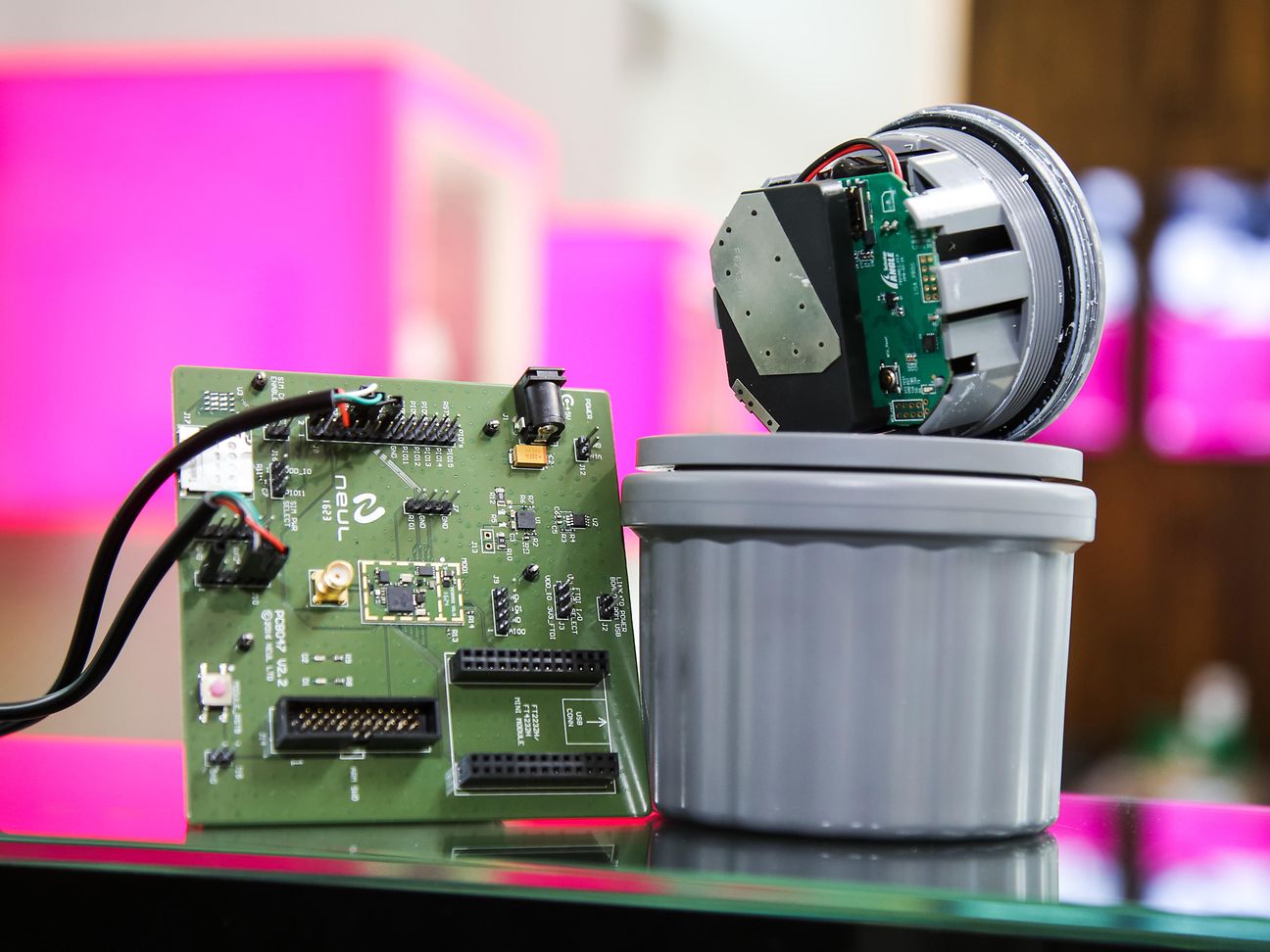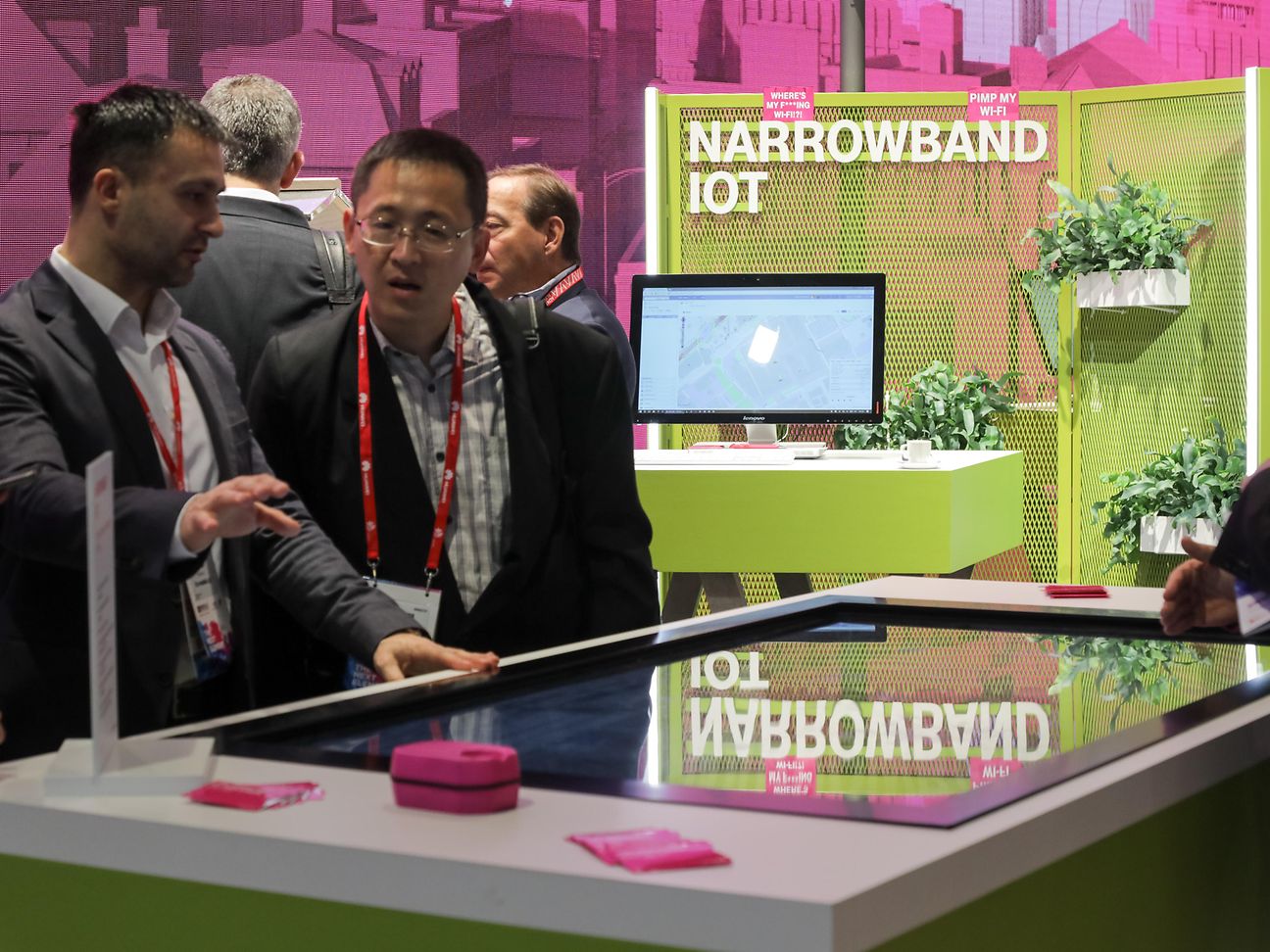

Easy and simple - The NarrowBand Internet of things
The network infrastructure absolutely has to be ready to interconnect machines, cars and countless other objects via the Internet of Things. It is no longer a question of handling only a few hundred smartphones inside every radio cell, but tens of thousands of devices and sensors.
With the emergence of narrowband structures for the Internet of Things, we now have an accepted worldwide standard according to which IoT solutions will work all over the planet. "Normal" mobile telecommunications simply won't be able to handle the Internet of Things. Energy consumption would be far too high and the networks, burdened with the load created by tens of thousands of devices and sensors in a single radio cell, would quickly grind to a halt. That's why the road to the connected world is paved by a new narrowband radio technology referred to in the jargon as the NB-IoT (NarrowBand Internet of Things).
Extensive coverage
Narrowband communication works using radio waves that permit particularly extensive coverage. At the same time, these waves can get through concrete walls and into the furthest flung corners of any building, penetrating right down deep under floors. As sensors will generally have to transmit small packets of data only on an hourly or daily basis, they can run unattended for years without needing a change of batteries.
For example, gas and water meters – in contrast to smart electricity meters – are not connected up to the mains, and are often installed in cellars, where mobile reception is generally either weak or entirely absent. Using battery-operated NB-IoT modules, service providers can read such meters remotely without requiring the customer to stay home to let them in.
Intelligent parking guidance system
And in the smart city, narrowband technology can be used to control street lighting, for example. Appropriately equipped street lamps can be switched on and off or dimmed remotely and can report faults autonomously. Connecting parking spaces using NB-IoT technology allow operators to optimize their utilization. An intelligent parking guidance system can lead drivers along the shortest route to the next available parking space.
Globally accepted standard
As the first in the world in the sector, Deutsche Telekom, together with its partner Huawei, has already made a start with the IoT-enabled narrowband network in Germany and the Netherlands by creating a globally accepted standard for the Internet of Things. Every newly developed IoT solution can now work with NB-IoT anywhere in the world. This means, for example, that makers of smart connected washing machines can sell their products worldwide, without having to make adaptations depending on the country they are selling to.
Secure communication
Initial tests are now running in Bonn and the Netherlands on systems that can show drivers where free parking spaces are available. Buried under streetside parking spaces or in public parking lots, sensors provide the information required by a downtown parking guidance system. These sensors communicate with a central Deutsche Telekom computer system, which then passes on the information via an app to users' smartphones. Consumers can then pay parking fees that can be calculated with minute-by-minute precision directly via their mobile phone.

